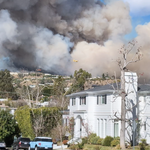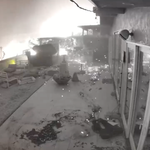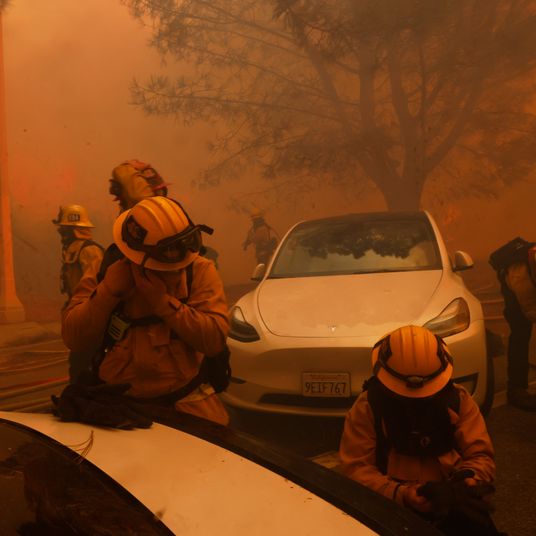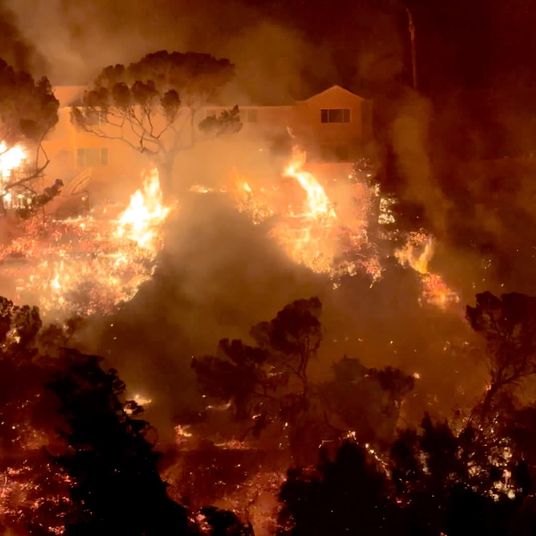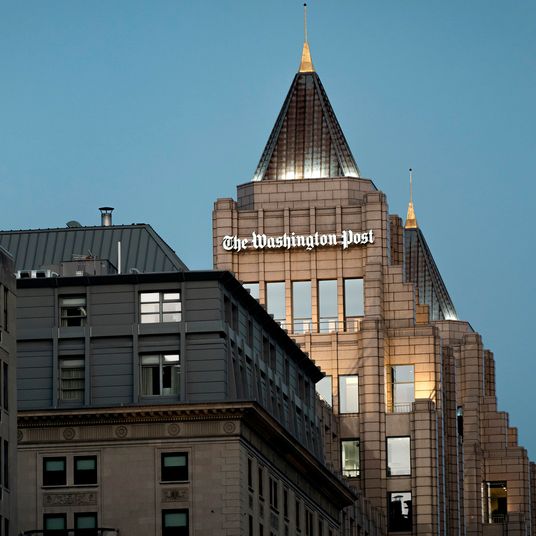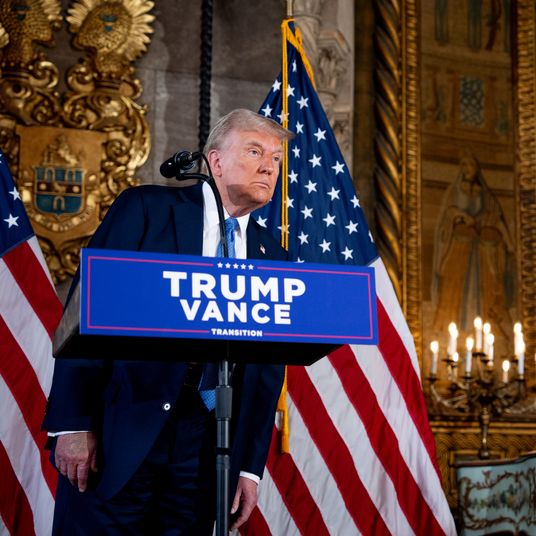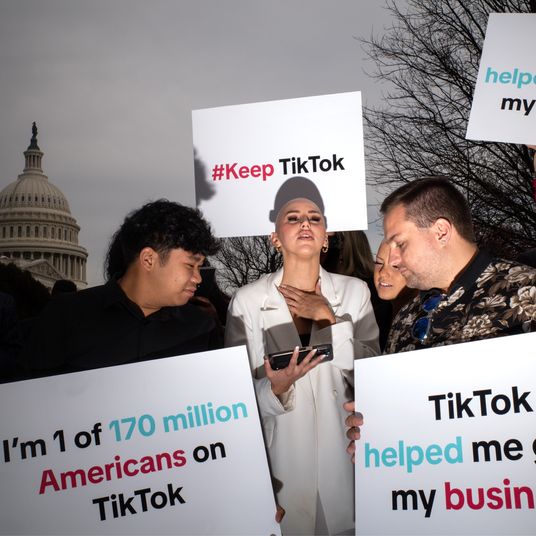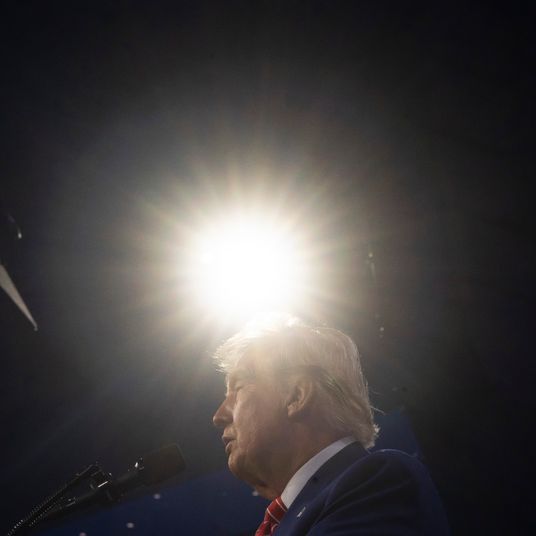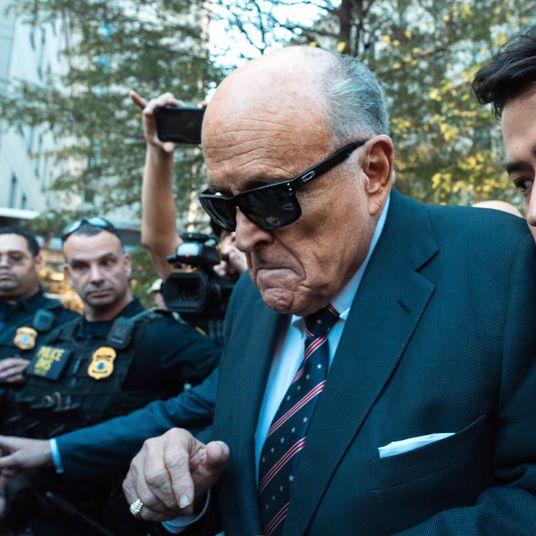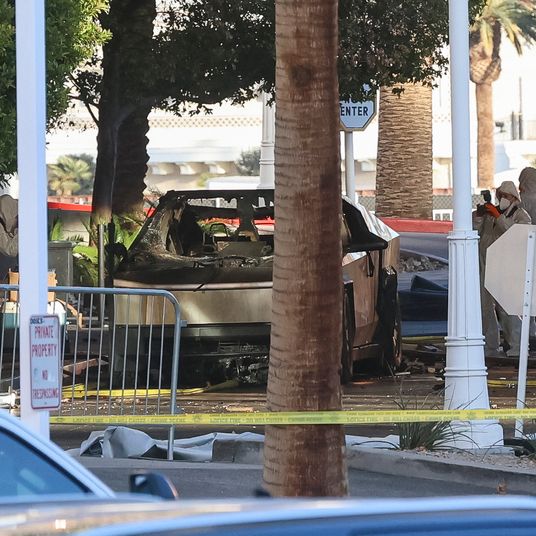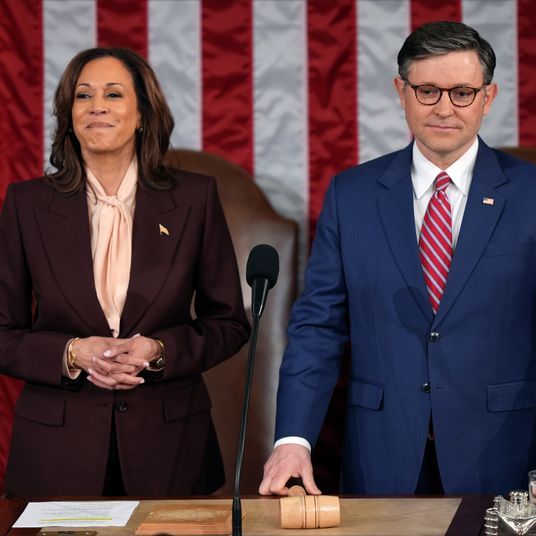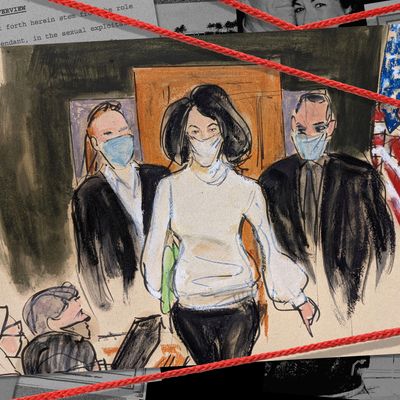
Want regular Maxwell trial dispatches in your inbox? Sign up for Choire Sicha’s limited-run newsletter Court Appearances here.
Well before dawn, reporters and spectators began lining up. The last of them weren’t in the courtrooms until just about noon; none were left behind. Outside in the cold, Vanity Fair’s Gabe Sherman and his Jack Spade knapsack asked some probing questions of a woman holding a “Do You Trust Gates With Your Body?” sign, featuring, naturally, pictures of Jeffrey Epstein, Bill Gates, and a vaccine syringe. The protester called us all stenographers — but then saw a good pal in line, right behind Gabe. They hugged. Waiting for a seat inside, Fox 5 legal hottie Mike Sacks and CBS’s Nathalie Nieves discussed their love of Milton — John Milton? The Paradise Lost one? — and the apparently important new Milton biography, Making Darkness Light.
The actual courtroom in which the Ghislaine Maxwell trial began today in lower Manhattan is simple, a bit dowdy, and uncrowded. It includes the notable COVID-era addition of two plexiglass–and–HEPA-filtered boxes: one for the lawyer currently speaking and one for the person testifying. The box for witnesses, to the left of the judge, is creepy even when empty. Its slightly shiny surface carries a reflection; the masked faces of the people in the courtroom are mirrored back in black and white, stacked in rows, like a little snippet of the famous ballroom photo from the Overlook Hotel. It’s an eerie effect.
After some last-minute drama around final jury selection, the trial began with lawyers occupying the plexiglass container. Both the prosecution’s and defense’s opening statement came off like one of those moments that you rehearse again and again and then, live, it all comes off flat and amateur.
Most surprising was how many ways Maxwell’s lawyer Bobbi Sternheim called the women who accused her client of facilitating abuse some version of gold-digging, money-hungry adventuress. Sternheim labeled the four women, all of whom will testify in the case, as desperate for fame or drugs. She even called one an actress. “His accusers have shaken the money tree and millions of dollars have fallen their way,” she said.
Sternheim went on about this for an extremely long time, and though women watching the courthouse’s closed-circuit broadcast in the overflow rooms were openly shaking their heads, we all know this line of argument will probably go over very well.
Two things from today
The first is boring and will continue to get a lot of attention. It’s a battle about what matters the expert witnesses are allowed to address that has been raging in court motions for ages now. (“Grooming by proxy” is a hotly contested concept; experts will not testify about the idea of grooming victims on behalf of someone else because the academic literature is not there yet, apparently.)
Expert testimony will touch on other hot-button topics, such as women recalling events that happened to them many years ago — and that kind of thing interests the tabloids. So you will be hearing about suggested memories, and faded memories, and the nature of victimhood. But expert witnesses are boring, sorry!
The second, though: It was surprising how much of the opening material revolved around the fact that the four government witnesses have all been compensated by the Epstein Victims Fund. The fund, administered independently to settle claims against Epstein with money from his estate, paid about $125 million to 150 recognized victims. That means it would be hard to find any witnesses who were not compensated by it.
As part of the compensation process, victims were interviewed at length about their claims in a private and empathetic environment. Many claims were denied; more were paid. Everyone was promised confidentiality. And now those conversations and their resulting pay stubs are being provided to both sides in this trial. (The information is intended to be kept confidential.)
So Maxwell’s lawyers believe the key here is not in preventing victims from testifying but in more testimony — drawing upon these previous interviews, using their words to undermine the government’s case.
What’s next?
I keep saying there will be no answers here. But there may be just a few nearby, at least. The government seems confident that the people slated to testify will shed some light. Staff — including a pilot, who began testifying at the end of day one — are included on that list. Outside the courtroom, an Epstein victim has a new book coming out this week that’s getting a big glossy exclusive in a few days. Could that have any effect on the trial? Well, no, that’s not how trials work.
The trial will certainly not be undercovered. Some of the best legal and Epstein reporters in the world are attending. Notably, Julie Brown of the Miami Herald is in town. Much of what any of us know about Epstein is owed to her years of work. She and other newspaper greats, like Ben Weiser at the Times, will be doing their thing alongside the more aggressive types like the folks at Insider. For every viral paranoid tweet about how “the media is ignoring this case!!!!” — and there sure are lots of those — there is a member of the media covering this case.
Want to know more about the case? Don’t forget to check our FAQ. Write me when you have a question or when you’re sure I’m wrong or dumb! I probably won’t have time to answer every email but will at the very least listen and learn from you.



